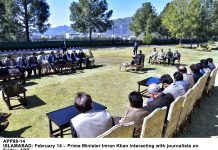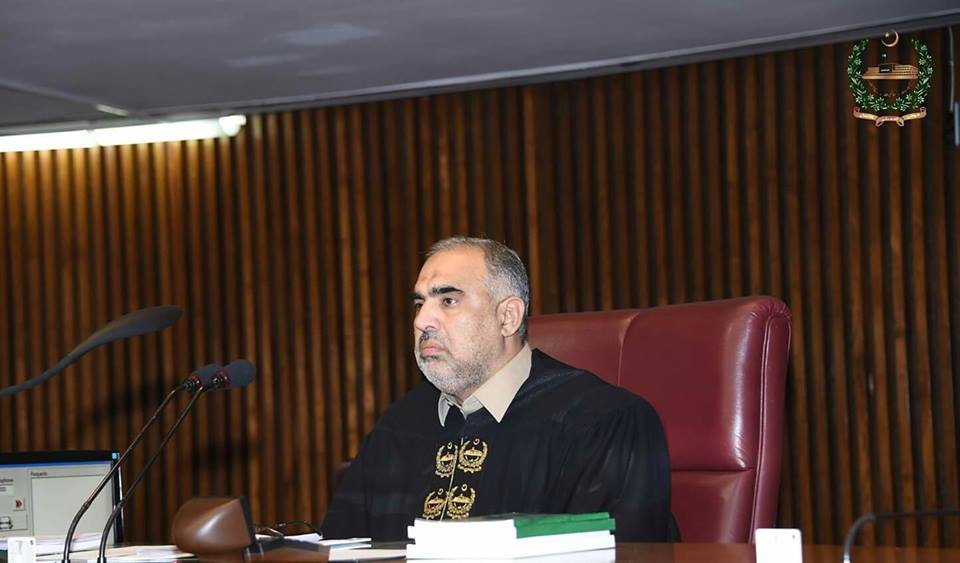مضمون کا ماخذ : raspadinha acumulada
The present-day Pakistan
ISLAMABAD: The phrases “shooting yourself in the foot” or “ incorrigible” or a “gorilla asphyxiating under its own burden” befit the present-day Pakistan. Incoordination among bureaucracy, so-called state-run institutions and the security establishment, it seems, seem to zero-down all the good that Pakistan as a state may be doing here and there. The cancellation of […]
ISLAMABAD: The phrases “shooting yourself in the foot” or “ incorrigible” or a “gorilla asphyxiating under its own burden” befit the present-day Pakistan. Incoordination among bureaucracy, so-called state-run institutions and the security establishment, it seems, seem to zero-down all the good that Pakistan as a state may be doing here and there.
The cancellation of the PIA flight to Kabul Thursday morning, yet again for “technical reason,” is the latest manifestation of this self-destructive dysfunction among state institutions.
Among the passengers was a Pakistani singer who was on the way for a concert in Kabul. An Afghan family, whose visa expired on Thursday itself, too, was on the flight along with a family on the way to attend the funeral of a family elder.
And the most important from the Pakistan perspective was a delegation headed for the annual Herat Security Dialogue. It included some very influential Pakistani opinion multipliers such as former ambassador Mohammad Sadiq, former Senator Afrasiab Khattak, journalist/analyst Tahir Khan, and academic Dr Azmat Hayat, former vice chancellor of the Peshawar University.
All were on the way to a dialogue that draws intellectuals from the region every year. This time around, the Pakistan embassy itself pushed for participants from the country so that the usual Pakistan-bashing at the conference did not go unresponded.
But thanks to PIA, the flight to Kabul was cancelled and most delegates refused to take the longer, arduous Dubai-route to Kabul. This means little Pakistan representation would leave the space wide open for all sorts of negative story on the country.
Cancellations to Kabul, by the way, are a frequent phenomenon. Those compelled by personal or professional reasons have to then take the longer Dubai-route, meaning thereby that a flight of about 45 minutes turns into a 20-hour odyssey – because of the to and fro to the Islamabad airport twice within a few hours.
It also explains the priorities of the “revolutionary” rulers of this country and leads one to ask two questions; (a) are those at the helm of power – those who make critical appointments to key positions in the PIA – really interested at all in improving relations with Afghanistan? And (b) is it one way of systematically discrediting and paralysing the national carrier to create a clumsy excuse for its privatisation?
Khattak, a much sought after Pakistani Pashtoon nationalist, opined that the frequent cancellation of the Kabul flights could be a ploy to run down the PIA for its eventual privatisation.
The mayhem and maltreatment of Afghan visitors on border posts of Torkham and Chaman is another reflection of the tardy handling of the issue by our civilian and security institutions. With every harsh word that a border security guard exchanges with an Afghan man or woman, with every stick that a guard hurls at desperate Afghans wanting to cross into Pakistan for medical or business or personal reasons, a new anti-Pakistan story takes birth.
Officials have their curious ways of explaining these occurrences away in procedural jargon, but these cannot rub off the negative story that the clumsy handling of Afghan visitors or refugees takes place at the border. Every single story means more adverse press for the country. Every maltreatment of an Afghan amounts to further shrinking whatever little social space Pakistan has in Afghanistan.
Without a single-window, whole-of-government approach, Pakistan cannot regain the massive space it has lost in Afghanistan. Tactical approach must give way to strategic thinking, which, it seems, is missing at the moment. And this is not price at all for something that is often described as a matter of “life and death for Pakistan.
But, Pakistani officials keep shooting themselves in the foot by reasoning and justifying the mistreatment or mishandling of the Afghans – mostly for visa issues – through the procedural lingo. Little do they realise that people at large, particularly those abroad, only listen to or get to read about the “inhuman treatment of Afghans” at the borders.
The writer is Editor, Strategic Affairs
Published in Daily Times, October 13th 2017.









